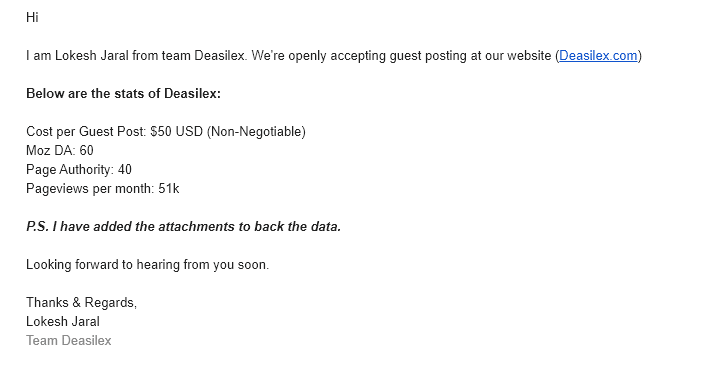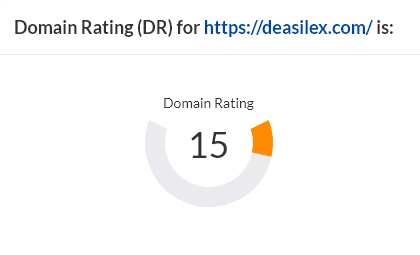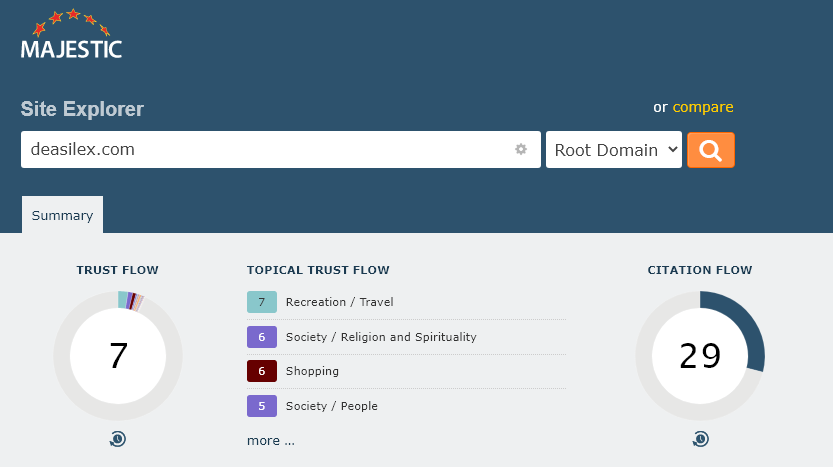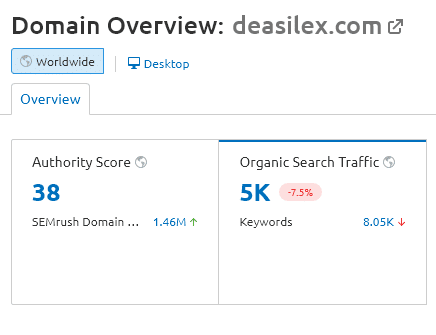No matter how hard the SEO industry or Moz itself trys to say otherwise, the Domain Authority metric has become inextricably connected to successful link building. I will not bore you with the mundane historical details that led to this, except to note that prior to Domain Authority link building was inextricably connected to Google’s Toolbar PageRank(TBPR) metric, a rough estimate of a web document’s value published by Google themselves until sometime in 2013 and officially killed off by Google in 2016.
Many SEOs, business owners, and marketers have spent the better part of a decade conflating Domain Authority(DA), a whole number score on a scale from 0 to 100, with the actual value of a website to Google’s search engine algorithm along with possible value in Bing and DuckDuckGo. They were led this direction by link building focused SEOs wanting a TBPR replacement, shady thought leaders, and inaccurate data – sometimes published by Moz themselves – correlating DA to rankings IIRC.
The reality is far different.
Google does not use nor do they endorse any of the third-party metrics of overall site quality or page-level quality created by SEO focused SaaS tools. That includes Domain Authority (Moz), Domain Rating (Ahrefs), Trust Flow (Majestic), Authority Score (SEMrush), Page Authority (Moz), URL Rating (Ahrefs), Citation Flow (Majestic), or Trust Score (SEMrush). While these metrics can provide valuable insights for SEO analysis and even measurement, they are only attempts at interpreting what a search engine might think about a document and are far from being perfect representations.
Still, that does not change the fact that thousands of website owners, business owners, and marketers know they need to gain quality links to their website to help improve their rankings in Google’s search engine as well as others and they need an easy way to measure that quality for potential outreach and other opportunities. Domain Authority is the oldest and most widely known metric in its class and makes a suitable value in most cases for discussing quality even among those who are aware of its limitations and caveats.
That’s where some good old fashioned email spam and a little light fraud come in.
You may see a spam email like this one somehow evade your spam filters and hit your inbox.
You will note Lokesh here is not hiding the fact that this website is straight up selling posts (as opposed to charging an editorial review fee). This is a big red flag as it should categorize this post as “native advertising” since it is being paid for or sponsored.
While Lokesh does not come out and state that the purpose of this paid guest post is for link building to improve SEO, they certainly do infer it. Immediately below the cost of a guest post Lokesh lets me know what Moz metrics the homepage has:
“Domain Authority: 60
Page Authority: 40”
While these are not super amazing scores, they are really good for an independent blog and for only the low price of $50 usd. Anyone who has done link building knows that organically obtaining a DA 60 link could cost hundreds or even thousands of dollars and take weeks or months of effort to pay off – especially if it is a journalistically placed and editorially reviewed link that does not use the ‘nofollow’ attribute.
None of that has been said in this email, however, it is all assumption. If you want to place a guest post on this site, you likely just need to email Lokesh back and arrange to pay the $50.
To further provide evidence that this would likely be a worthwhile purchase for you, Lokesh even includes a Google Analytics screenshot to prove his claim about monthly traffic volume. It looks authentic enough, but of course could be taken after manipulating data in the browser window.
Something feels off though when you visit the website detailed in this email. There is nothing on the homepage.
Now, I might be just a simple country Hyper-Chicken but a high Domain Authority or high-value media website should have some content on the homepage.
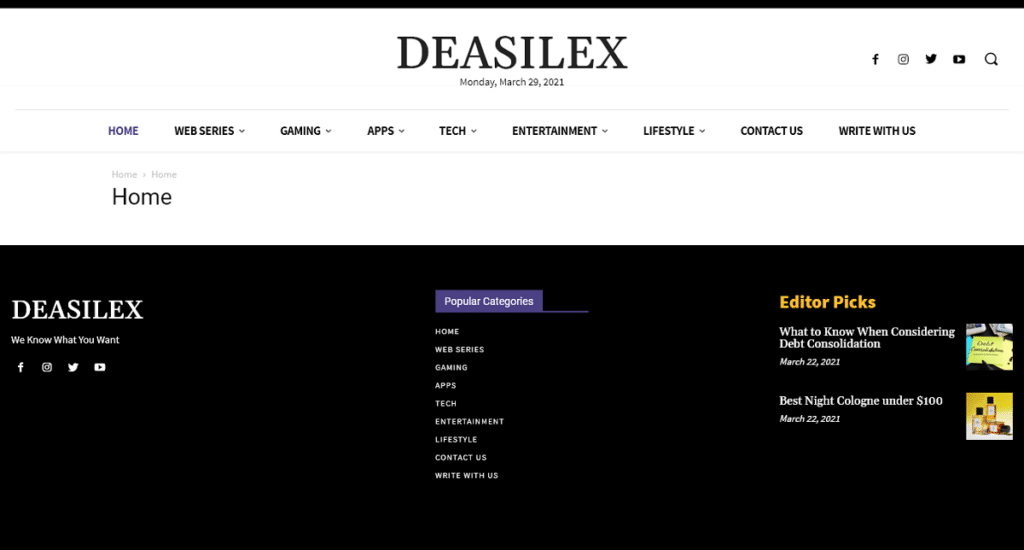
How is a news website / highly trafficked blog without any homepage content getting such great scores from Moz then? What is going on here?
Great question.
The scammers in this case likely actually publish the content you pay them to publish, that is the sole good news. The bad news is, they have completely lied about how valuable their website is using the preconcieved notion that a high Domain Authority makes a website valuable and then tricking Moz in to giving them a high score.
To achieve the high Domain Authority score our scammers use a weakness in Moz’s DA calculations. That weakness is that Moz assumes any link from a high value website passes on high value itself. Though logically most of us may agree that a search engine would not consider pages on their own site(s), especially those of little substance, to carry any sort of link or authority values used in their own ranking algorithms.
The scammers use a little known feature of Google’s various search properties, the URL redirect notice page. Whenever a Google property redirects a user to an outside URL using the URL parameter “url?sa=t&url=[domain encoded here]” a page is created giving the browser user a notice about the pending redirect.
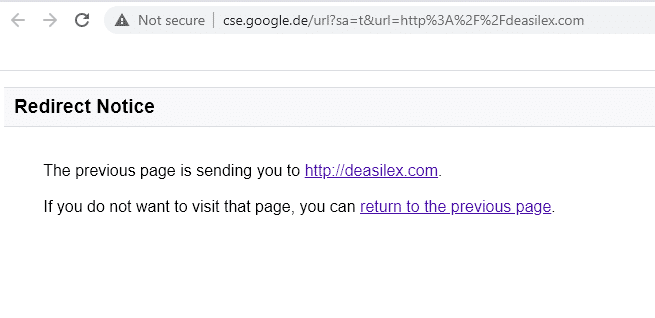
This pages are static and scammers then build a bunch of incredibly low quality and spammy links to these static pages to ensure that webcrawlers like Moz, Ahrefs, and Majestic are forced to see them, crawl them, and then assign values based on those link connections and Google’s value metrics inside of their respective systems.
If the email spam wasn’t a red flag and the demand for payment for guest posting wasn’t a red flag either. Then next big hint that this is a link building scam should be the sheer volume of Google domains linking to the website as shown in the below screenshot with boxes highlighting the Google domains (click/tap to enlarge).

Due to its popularity as the defacto measurement of website value, Moz’s Domain Authority appears to be the target for manipulation though all link databases and their metrics have weaknesses that scammers can exploit using various tricks.
In this specific case Ahrefs Domain Rating was not fooled:
Neither was Majestic’s Trust Flow or Citation Flow:
SEMRush’s Authority Score was more fooled than most others besides Moz:
Frequently Asked Questions
That aren’t actually frequently asked, but I am anticipating them.
Question: How can I avoid falling prey to a link building scam?
Answer: Never pay for a link, that should be a given. In this case also never pay for a guest post. You should also thoroughly vet any guest contribution or PR outreach opportunties for credbility. Not replying to spam emails will also help, but the best tool here is a healthy skepticsm when examining opportunities. Review our list of quality link building tactics and read up on link building education to help avoid any future scams too.
Question: Is it only Google they use to inflate the Domain Authority score at Moz?
Answer: No. There are dozens of ways to get “links” from high-level websites that in fact do not actually carry any value but appear to in various tools. These can be blog comments, wikis, or injected spam links created by hacking software.
Question: What could Moz do to fix this?
Answer: The pattern seems pretty clear and obvious, the Moz team should be able to easily pull out the URLs the scammers use on Google properties to inflate the Domain Authority. I would hope they are at least looking in that direction, but I could not say for certain since I do not know the inner workings of their software nor their development roadmap.
Question: Fifty dollars does not sound like that much, what if I decide to give this a try, it’s worth a gamble even though Google might just devalue the links right?
Answer: No. If you pay for a clear and obvious link building scam like this (which clearly others have) it only reinforces that this is a way for the scammers to earn money. There’s also the fact that Google has been very punitive in the past (especially the year 2013) on clearly manipulative links. While the search giant is more passsive at the moment devaluing links, there is no telling when they will change their stance or take punitive action on clear link farms like this one.
Question: Doesn’t Google dislike Guest Blog links and Editorial Review Fees?
Answer: Probably, Google dislikes anything that cuts Google out of the money loop. Our stance is to support small and upstart journalism through any legal means they request short of buying links. If a smaller blogger running their site as a side hustle requests a modest fee to review a pitch we send them, why would that be a bad thing? Do you have any idea how insanely little these websites make on Google’s advertising? Keep your focus on quality sites and throughly vet each site you work with. If we see signs a blogger or media site is inauthentic or selling links directly we will not work with them on any projects and will look for other opportunities.

